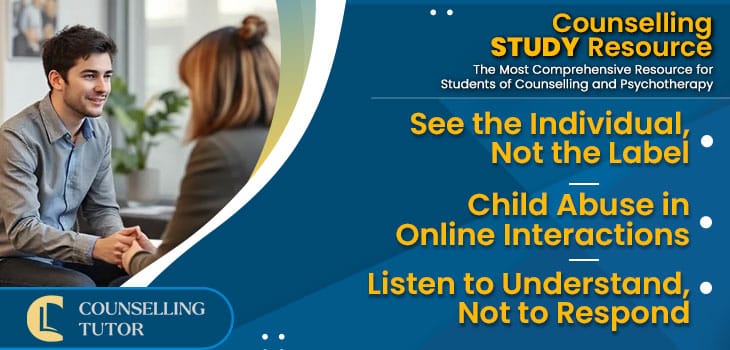See Counselling Skills Used in Real Sessions by Qualified Therapist
Real Sessions – Real Presentations – Real Skills
Gain the competence and confidence to use counselling techniques effectively!

In Episode 316 of the Counselling Tutor Podcast, your hosts Rory Lees-Oakes and Ken Kelly are back with this week’s three topics:
See the Individual, Not the Label
Having a unique and tailored approach can become even more important to remember when working with neurodivergent clients. It’s important to remember that a certain diagnosis or stereotype cannot represent everyone.
The main points of this discussion include:

Real Sessions – Real Presentations – Real Skills
Gain the competence and confidence to use counselling techniques effectively!
In this week’s ‘Practice Matters’, Rory speaks with Catherine Knibbs about how seemingly innocent online interactions can lead to child abuse.
The key points of this section include:

On-demand access to a rich lecture library covering theory, skills, and professional development for counselling students—Mapped to the UK awarding body criteria
“The Student Library has been BRILLIANT, I can’t recommend it enough!
It has been a lifeline in helping me prepare for practice and my first clients. If you’re considering it, go-for-it, it’s absolutely worth it!”
Kelly – Graduated and now in practice.
Active listening is a key skill for any counsellor. Listen as Rory and Ken discuss what it means to listen to understand, not just to respond:
Seeing the Individual Not the Label

Get on-demand Certified CPD that is implementable in your practice
